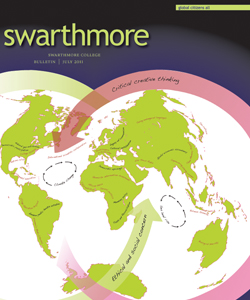Unwise and Extralegal
“The Janitor and the Judge” in the April Bulletin reminds us how Aristotle was a “lover of wisdom,” or “philo sophia” in Greek. He believed humans could wisely govern their actions by using reason (logos), and this distinguished the human species, now called “Homo sapiens” using the Latin words for “wise man.” Aristotle also recognized that feelings, such as “empathy,” figured among the factors in human interactions.
In response to criticisms about disparities in sentencing, our criminal justice system made “equal justice” its goal. Legislatures and courts have adopted guidelines and mandatory sentences in order to assure the same sentences for each type of crime. Guidelines are obviously misguided. We know networks of neurons and experiences determine individual behavior, and no two persons are alike. Treating persons the same who are substantially different is not treating them equally.
Unquestionably, in the case described, Judge Forer had good reasons to find the guidelines inappropriate. But her sentencing of Michael hardly departed from the guidelines while entirely departing from her jurisdiction. Forer’s sentence required her county jail to operate as a work-release center in order to permit Michael to hold a day job. Judges do not have the power to manage jails and prisons. Making Michael’s diurnal release available equally to other inmates would cause unmanageable and hazardous situations.
Every day, jails would have to perform the nontrivial task of searching each prisoner on exit and return to exclude intoxicated or diseased returnees and prevent trafficking in contraband. Extramural activities of prisoners need monitoring, and jails aren’t suited for that. Only a county or state executive could introduce this work-release option into a county jail routine. Judge Forer’s good reasons led to an unauthorized, unwise, and extralegal sentence.
Joe Baker '58
Orlando, Fla
 Email This Page
Email This Page